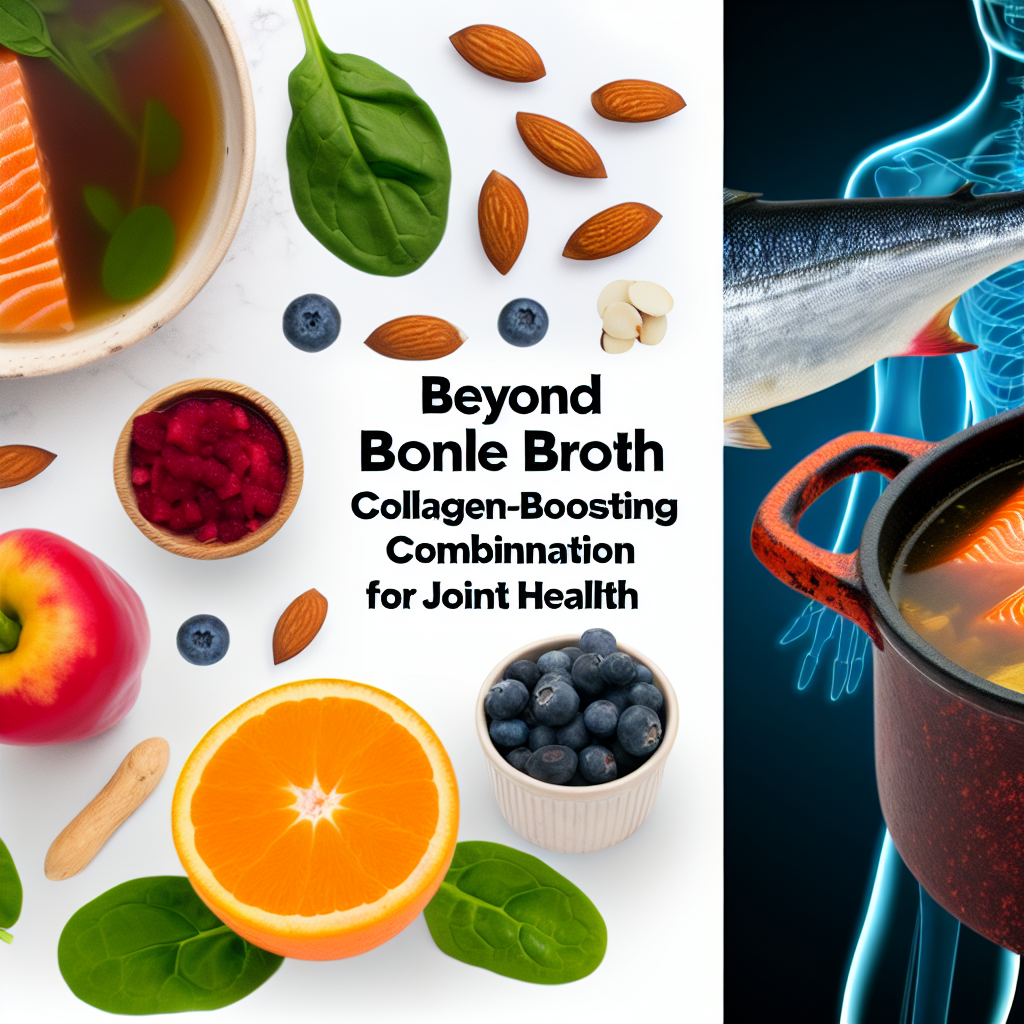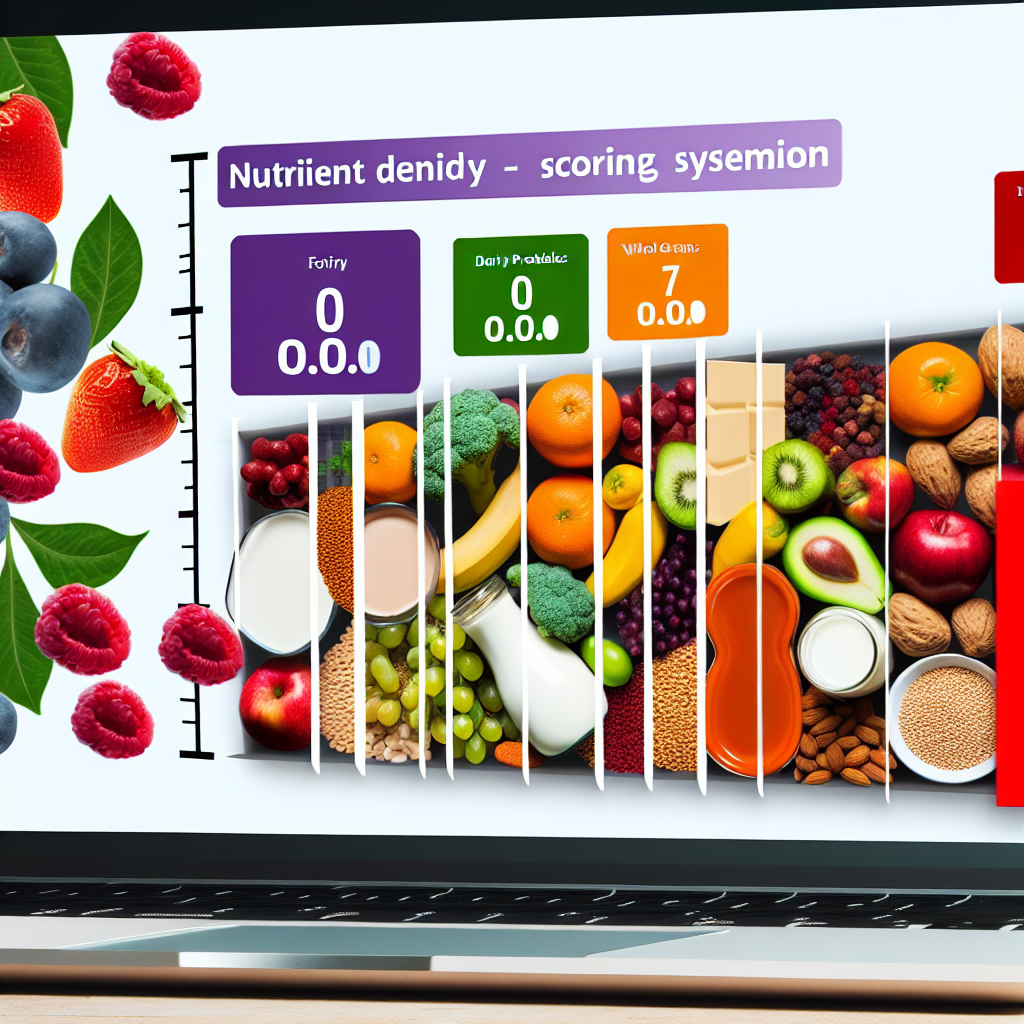Beyond Bone Broth: Collagen-Boosting Food Combinations for Joint Health
Why Joint Health Deserves a Front Row Seat
Joint health is a critical aspect of overall well-being, yet it often goes overlooked until discomfort or limited mobility becomes noticeable. Whether you’re an athlete, an active adult, or someone coping with age-related joint stiffness, maintaining the integrity of your connective tissues can greatly enhance mobility and quality of life.
While bone broth has gained popularity in recent years for its purported collagen-boosting benefits, it’s far from the only nutritional strategy available. In fact, nature offers a wealth of food combinations that go beyond traditional remedies to help stimulate the body’s natural collagen production while reducing inflammation and supporting joint repair.
Collagen is the most abundant protein in the human body, forming the main structural component of connective tissues such as cartilage, tendons, ligaments, and skin. With age, the body’s natural collagen production decreases, and external factors like poor diet, smoking, stress, and excessive sun exposure can exacerbate its degradation. The loss of collagen not only affects the skin’s elasticity but also diminishes joint cushioning, leading to common issues such as arthritis and joint pain.
Bone broth has been lauded because it contains gelatin, which breaks down into collagen in the body. While helpful, consuming gelatin alone does not guarantee increased collagen synthesis. The process is complex and relies on several cofactors—nutrients like vitamin C, amino acids, and trace minerals—that act synergistically to promote collagen formation. This means that simply sipping broth isn’t a silver bullet. Optimizing your diet with targeted food combinations can yield significantly better results in preventing joint degeneration and improving overall mobility.
In this article, we delve into cutting-edge nutritional approaches that integrate natural, homeopathic, and herbal methodologies with a scientific foundation. You’ll discover powerful, collagen-boosting food pairings that not only nourish your joints but also promote systemic health. From tropical fruits to herbal infusions and omega-rich seeds, the arsenal of joint-friendly foods is broader and more delicious than you might expect.
The Science is In: How Nutrition Fuels Collagen Production
Recent advancements in nutritional science have shifted the focus from isolated supplements to bioavailable food sources that actively support the body’s ability to regenerate collagen. Groundbreaking research has shown that the precursors and coenzymes for collagen synthesis are found not just in animal products, but also in plant-based sources when combined intelligently.
A pivotal study published in the journal Nutrients (2018) notes that certain amino acids—glycine, proline, and hydroxyproline—are essential for collagen formation. These are abundantly found not just in animal proteins but also in legumes and nuts when coupled with appropriate enzymatic cofactors like vitamin C and zinc.
One notable clinical trial conducted by Clark et al. (2008), published in Current Medical Research and Opinion, demonstrated that supplementation with hydrolyzed collagen over a 24-week period improved joint comfort and mobility in athletes. While supplement-based, the study highlights how consistent collagen intake—through diet or supplementation—can significantly benefit joint health without adverse effects.
Vitamin C is another crucial component, as it facilitates the conversion of proline to hydroxyproline—a building block of collagen. The Linus Pauling Institute at Oregon State University underscores that vitamin C deficiency not only halts collagen synthesis but also leads to degradation of existing collagen structures, accelerating joint damage.
In another 2021 review in Frontiers in Nutrition, researchers explored the role of polyphenols and antioxidants in joint health, finding that foods rich in flavonoids and anti-inflammatory compounds—like turmeric, green tea, and berries—safeguard existing collagen while activating genes responsible for new tissue formation.
Additionally, omega-3 fatty acids, found in chia seeds, flaxseeds, and fatty fish, have been shown to lower systemic inflammation. A study published in the American Journal of Clinical Nutrition (2010) concluded that omega-3 supplementation reduced cartilage loss and joint pain in patients with rheumatoid arthritis.
8 Power-Packed Food Pairings That Boost Collagen Naturally
1. Citrus Fruits + Leafy Greens
Pairing vitamin C-rich fruits like oranges, strawberries, or kiwi with leafy greens such as spinach or kale enhances collagen synthesis. Vitamin C helps convert proline into hydroxyproline, a collagen-stabilizing amino acid present in greens.
2. Pumpkin Seeds + Citrus
These seeds are rich in zinc, a crucial mineral that assists in collagen formation and tissue repair. When consumed with fruit or salads containing vitamin C, the combo promotes efficient collagen production.
3. Bone Broth + Turmeric and Black Pepper
While bone broth supplies gelatin and collagen, adding turmeric (which contains curcumin) boosts anti-inflammatory properties. Black pepper enhances curcumin absorption, making the broth more effective.
4. Berries + Chia Seeds
Berries pack powerful antioxidants, which protect collagen from environmental stress. Chia seeds provide omega-3s and protein, making this duo ideal for combating inflammation and supporting joint flexibility.
5. Eggs + Garlic + Vitamin C-rich Veggies
Eggs contain proline and lysine, essential amino acids for collagen synthesis. Garlic offers sulfur compounds that support tendon repair. When eaten with bell peppers or broccoli, which are high in vitamin C, the synergy supports joint resilience.
6. Tofu + Pineapple or Papaya
Tofu contains protein, including glycine and lysine, which are essentials for collagen construction. Pineapple and papaya offer enzymes (bromelain and papain) that improve protein digestion and nutrient absorption.
7. Green Tea + Lemon
Green tea is rich in catechins, which protect collagen and reduce joint inflammation. Adding lemon not only improves flavor but adds vitamin C, enhancing the overall effect on tissue repair.
8. Shellfish + Tomato
Shellfish is a great source of copper, crucial for cross-linking collagen fibers. Tomatoes offer lycopene and vitamin C, which neutralize free radicals and aid tissue regeneration.
Conclusion: Rethinking Joint Health—One Meal at a Time
Joint health is intricately tied to our dietary choices, and while bone broth has its benefits, it should be viewed as part of a broader nutritional strategy rather than a cure-all. As the science of collagen and connective tissue health evolves, it’s clear that effective collagen support comes from a mosaic of nutrients working together rather than a single source.
By incorporating smart, synergistic food combinations rich in amino acids, antioxidants, and anti-inflammatory compounds, you offer your body the building blocks it needs to maintain and regenerate essential joint tissues. Whether you choose natural sources like leafy greens, seeds, and citrus fruits or enhance your routine with herbal teas and anti-inflammatory spices, every conscious food pairing counts.
Embrace the power of nature’s healing pantry and make collagen-boosting nutrition a daily habit. By doing so, you’re not just preserving joint function—you’re investing in lifelong mobility and vibrant health.
References
- Clark, K. et al., 2008. Collagen hydrolysate in osteoarthritis. Current Medical Research and Opinion.
- Micronutrient Information Center – Linus Pauling Institute, Oregon State University. Vitamin C and Human Health.
- Zdzieblik, D. et al., 2018. Collagen supplementation and bone health: A review. Nutrients.
- Frasca, D., et al., 2021. Aging and Inflammation in Joint Health. Frontiers in Nutrition.
- Wang, X., et al., 2010. Omega-3 fatty acids and rheumatoid arthritis. American Journal of Clinical Nutrition.
Concise Summary:
This article explores the importance of joint health and how nutrition can support collagen production for improved mobility and joint function. It highlights 8 power-packed food combinations rich in amino acids, antioxidants, and anti-inflammatory compounds that work synergistically to boost collagen naturally. From citrus fruits and leafy greens to omega-rich seeds and herbal infusions, the article provides a comprehensive guide to incorporating collagen-boosting foods into your daily diet.

Dominic E. is a passionate filmmaker navigating the exciting intersection of art and science. By day, he delves into the complexities of the human body as a full-time medical writer, meticulously translating intricate medical concepts into accessible and engaging narratives. By night, he explores the boundless realm of cinematic storytelling, crafting narratives that evoke emotion and challenge perspectives.
Film Student and Full-time Medical Writer for ContentVendor.com




